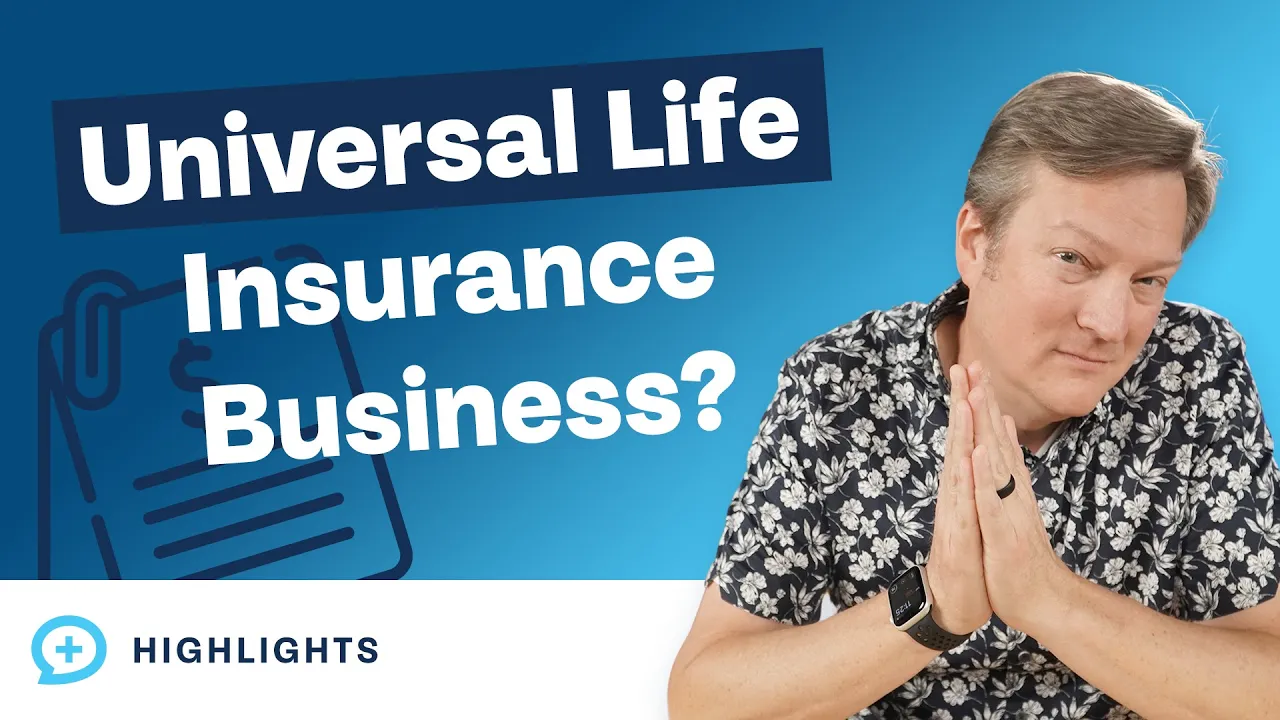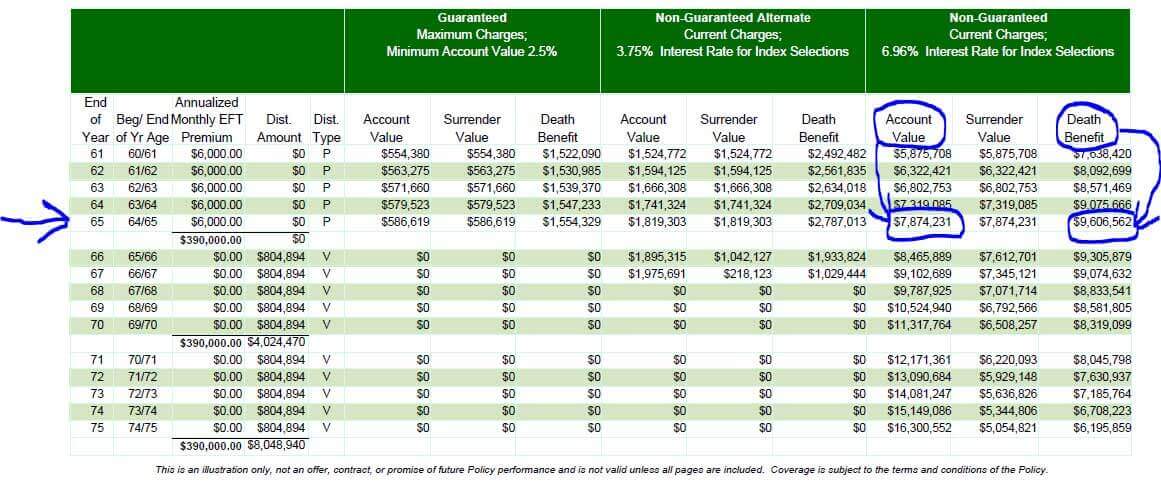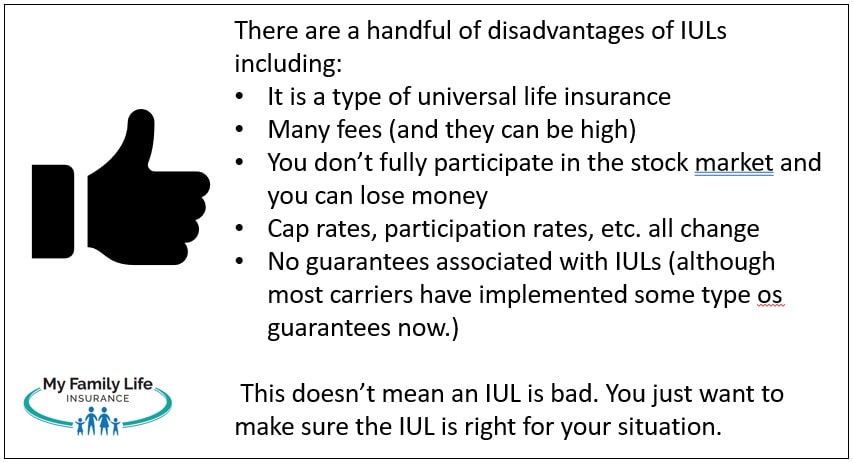All Categories
Featured
Table of Contents
Indexed Universal Life (IUL) insurance policy is a kind of permanent life insurance policy plan that incorporates the functions of traditional global life insurance policy with the possibility for money worth development connected to the efficiency of a stock exchange index, such as the S&P 500 (IUL policyholders). Like other forms of irreversible life insurance policy, IUL offers a fatality benefit that pays out to the recipients when the insured dies
Money worth accumulation: A part of the costs payments goes right into a cash value account, which earns rate of interest gradually. This cash money worth can be accessed or borrowed against during the policyholder's life time. Indexing choice: IUL plans use the opportunity for money value growth based on the performance of a stock exchange index.
What happens if I don’t have Long-term Indexed Universal Life Benefits?
As with all life insurance policy items, there is additionally a set of threats that insurance policy holders ought to recognize prior to considering this kind of plan: Market threat: One of the main risks associated with IUL is market risk. Since the cash money value growth is connected to the efficiency of a stock exchange index, if the index chokes up, the cash worth might not grow as expected.

Adequate liquidity: Insurance holders ought to have a steady financial situation and fit with the premium settlement needs of the IUL policy. IUL allows for flexible premium settlements within specific limits, but it's vital to preserve the policy to guarantee it attains its designated objectives. Passion in life insurance policy coverage: People that require life insurance policy coverage and a passion in cash value development might locate IUL enticing.
Candidates for IUL need to be able to understand the technicians of the plan. IUL might not be the ideal option for individuals with a high resistance for market threat, those that prioritize inexpensive investments, or those with even more immediate economic needs. Consulting with a certified economic advisor that can offer tailored advice is necessary prior to considering an IUL plan.
All registrants will certainly get a calendar invitation and link to sign up with the webinar through Zoom. Can't make it live? Register anyhow and we'll send you a recording of the presentation the following day.
Iul Death Benefit
You can underpay or avoid costs, plus you might be able to adjust your death benefit.
Flexible costs, and a death benefit that might also be flexible. Money worth, in addition to possible growth of that worth with an equity index account. IUL cash value. An option to allocate part of the cash value to a set interest option. Minimum interest rate assurances ("floors"), yet there might likewise be a cap on gains, commonly around 8%-12%. Accumulated cash value can be made use of to lower or possibly cover premiums without deducting from your survivor benefit.
Policyholders can decide the portion assigned to the repaired and indexed accounts. The worth of the picked index is tape-recorded at the start of the month and compared with the worth at the end of the month. If the index increases during the month, rate of interest is contributed to the cash money worth.
The 6% is multiplied by the cash money value. The resulting passion is contributed to the money worth. Some plans compute the index gains as the amount of the adjustments for the period, while other plans take a standard of the everyday gains for a month. No rate of interest is credited to the money account if the index decreases as opposed to up.
Who offers Iul Vs Term Life?
The rate is set by the insurer and can be anywhere from 25% to more than 100%. (The insurance provider can additionally change the take part price over the lifetime of the plan.) As an example, if the gain is 6%, the involvement price is 50%, and the existing cash value total is $10,000, $300 is contributed to the money value (6% x 50% x $10,000 = $300).
There are a variety of benefits and drawbacks to consider before purchasing an IUL policy.: As with conventional universal life insurance coverage, the policyholder can raise their costs or reduced them in times of hardship.: Amounts attributed to the cash money value expand tax-deferred. The money worth can pay the insurance policy premiums, enabling the insurance holder to decrease or quit making out-of-pocket premium payments.
What is Indexed Universal Life Calculator?
Numerous IUL policies have a later maturation date than various other types of global life policies, with some ending when the insured reaches age 121 or more. If the insured is still active during that time, policies pay the survivor benefit (yet not normally the cash worth) and the profits might be taxed.

: Smaller sized plan face worths don't offer much benefit over regular UL insurance coverage policies.: If the index goes down, no passion is attributed to the cash worth.
With IUL, the goal is to make money from higher activities in the index.: Because the insurance provider only acquires alternatives in an index, you're not straight invested in stocks, so you don't profit when business pay returns to shareholders.: Insurers charge fees for handling your money, which can drain pipes cash money value.
What is Guaranteed Indexed Universal Life?

For the majority of people, no, IUL isn't much better than a 401(k) - Indexed Universal Life for retirement income in terms of saving for retired life. Most IULs are best for high-net-worth individuals trying to find methods to minimize their gross income or those that have maxed out their various other retired life options. For every person else, a 401(k) is a better investment vehicle because it doesn't carry the high charges and premiums of an IUL, plus there is no cap on the quantity you might make (unlike with an IUL plan)
, the profits on your IUL will not be as high as a common financial investment account. The high expense of costs and charges makes IULs costly and substantially less affordable than term life.
Indexed universal life (IUL) insurance offers cash money worth plus a survivor benefit. The cash in the money worth account can make interest through tracking an equity index, and with some typically alloted to a fixed-rate account. Nonetheless, Indexed universal life plans cap just how much cash you can gather (typically at much less than 100%) and they are based on a potentially unpredictable equity index.
Indexed Universal Life Accumulation
A 401(k) is a much better option for that function since it doesn't carry the high costs and premiums of an IUL plan, plus there is no cap on the amount you may gain when spent. The majority of IUL plans are best for high-net-worth people looking for to reduce their gross income. Investopedia does not give tax, financial investment, or economic services and advice.
If you're considering purchasing an indexed universal life policy, very first speak to a financial advisor that can describe the subtleties and offer you an exact photo of the actual potential of an IUL plan. Ensure you understand how the insurance provider will certainly compute your rates of interest, revenues cap, and charges that may be assessed.
Latest Posts
Ul Mutual Life Insurance
Universal Life Policy Calculator
Guaranteed Universal Life Policy